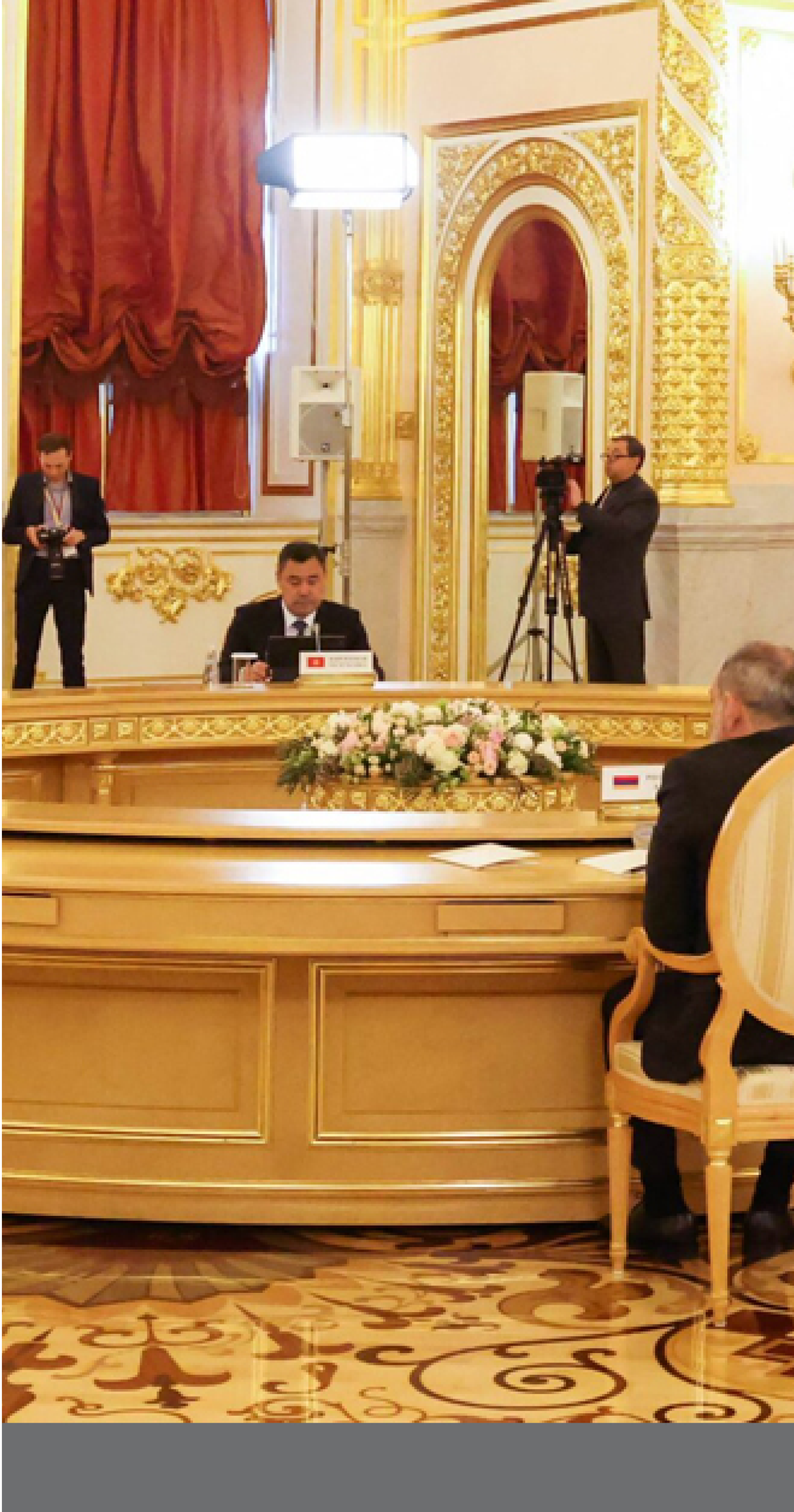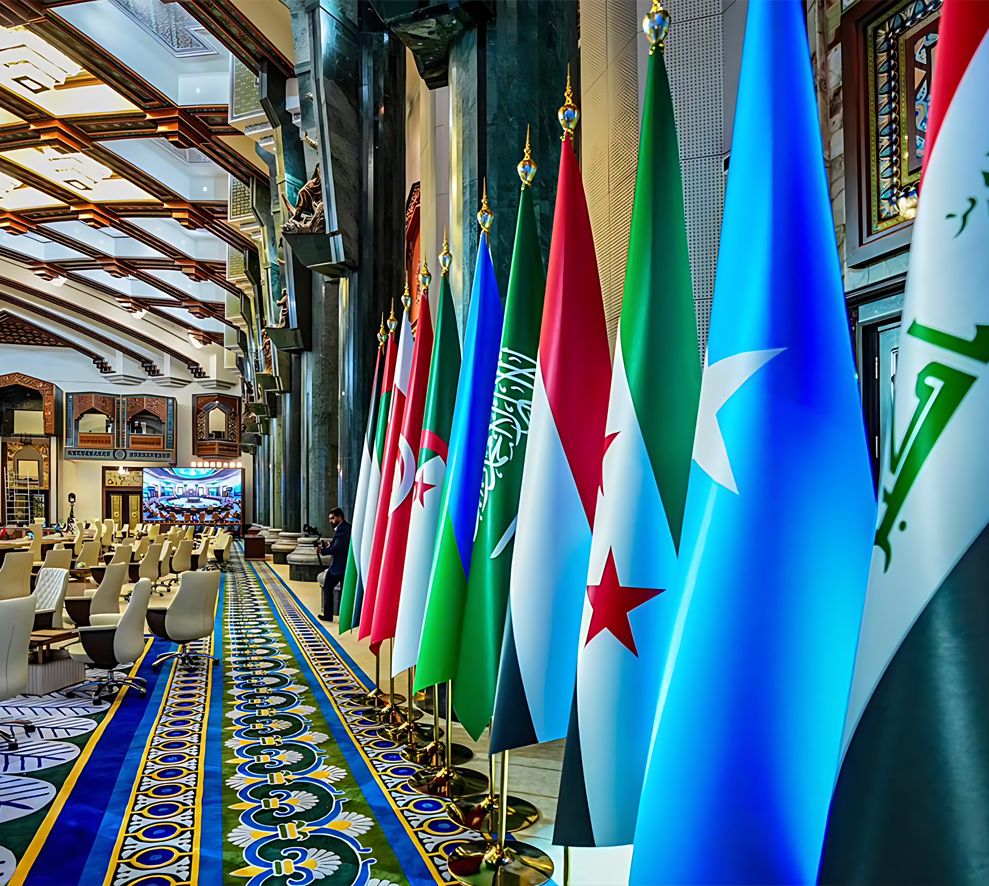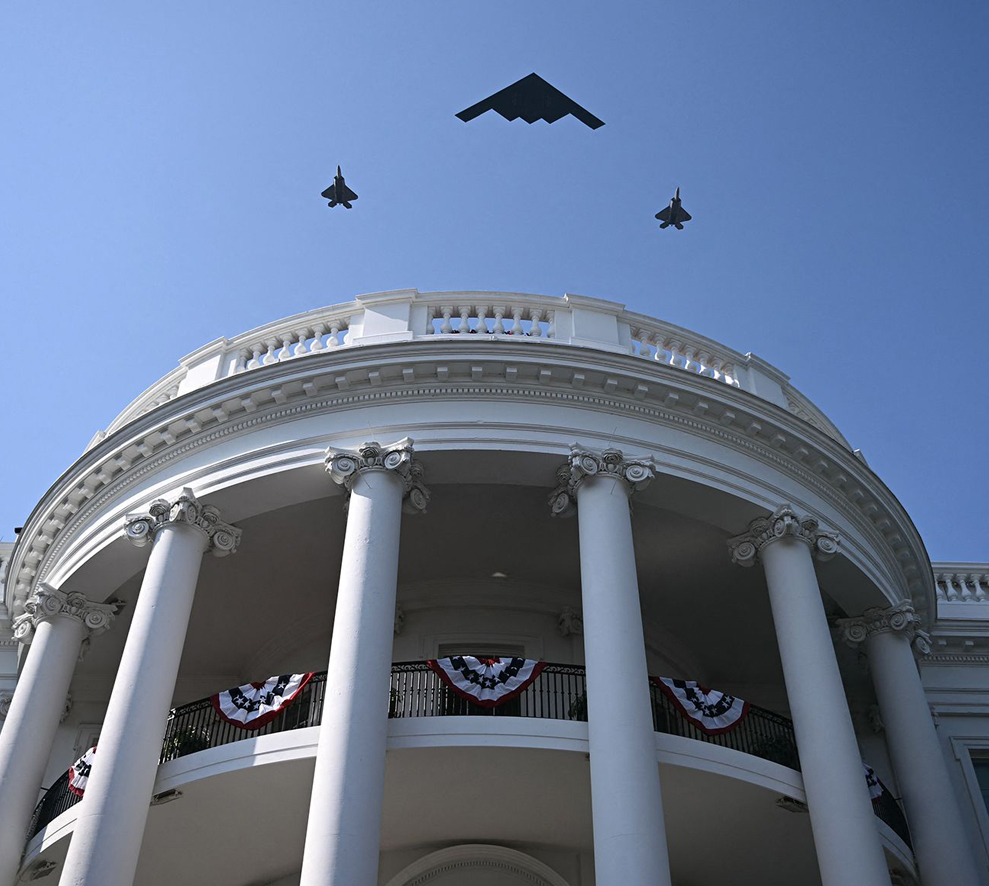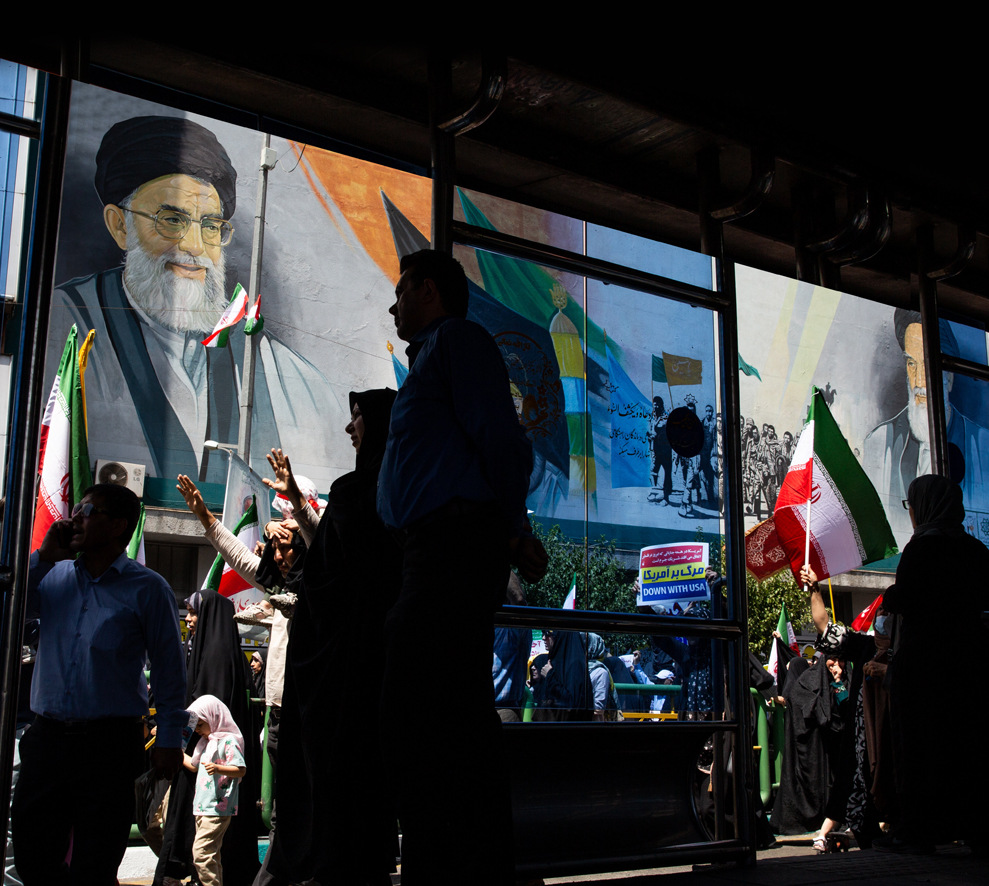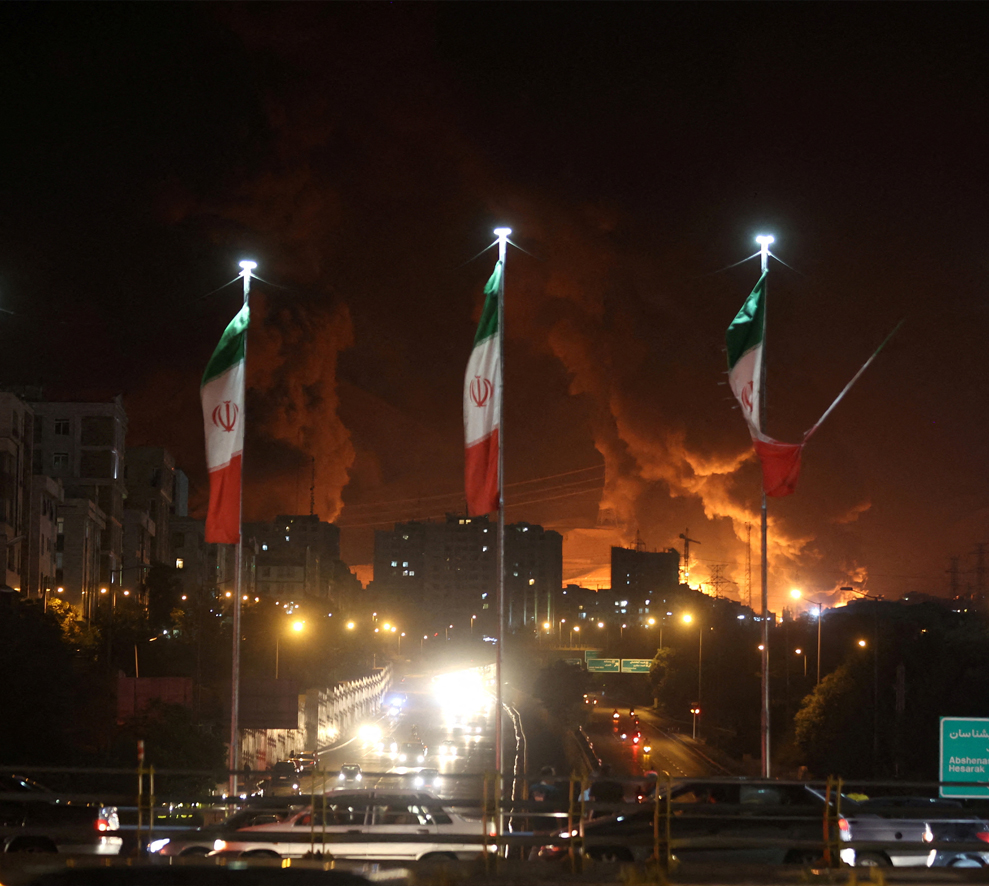Approaching an agreement on Iran's nuclear program is most frequently being talked about recently, after a long complicated round of negotiations in Vienna. Several reports likely suggest that Washington and Tehran made understandings along with negotiations and with intermediary of regional parties, as the same scenario before signing a nuclear agreement during Barak Obama's presidency in 2015 is recurring, when both America and Iran had an agreement after secret negotiations for months under care of Oman.
This analysis is based on a fundamental assumption that if Vienna's negotiations succeed or fail, this would be a radical turning point in the Middle East and its interactions, alliances and balance of powers. It would lead us to a major question about the aspects of impact of the approaching a nuclear agreement which the concerned parties are talking about, and whether it would create a phase of calm and stability in the region, or lead to a new more precarious phase of turmoil, tension and instability or probably an armed conflict.
Two ways or directions may be referred to in order to answer this question, the first goes that a nuclear accord between Iran and the United States given the current regional and international data will determine regional stability while the other direction goes the opposite way.
The way to stability and calm:
This direction is based on four main considerations:
First: Tendency towards regional political realism:
It means that making a nuclear agreement and lifting sanctions against Iran and U.S reconsideration of policies in the Middle East in order to focus on the Pacific region in dealing with China will result in regional parties’ inclination to political realism which pushes them to cope with reality and try to adapt, and then reconsider their policies regarding regional crises giving up competition and seeking calm as a try to find settlements and peaceful compromises for these crises.
In this regard, indications referring to such tendency can be observed in view of reconciliation spheres in the region since last year, and involvement of both Saudi Arabia and Iran in four rounds' talks and joining Armistice Agreement to stop the war in Yemen for two months and decline of tension between the Gulf and Lebanon.
Second: A different Iranian policy:
As a result of the agreement on Iran's nuclear program, sanctions on Iran will be lifted. This may urge it to reconsider foreign policy and tools toward the region, basically due to two factors: first, Tehran may not need a worthless territorial expansion that does not serve its national interests as much it needs a return to the interior and repairing debilitating economy. Second, in order to reach a nuclear accord, Tehran has to show goodwill in particular towards regional countries which are still conservative about any future nuclear accord.
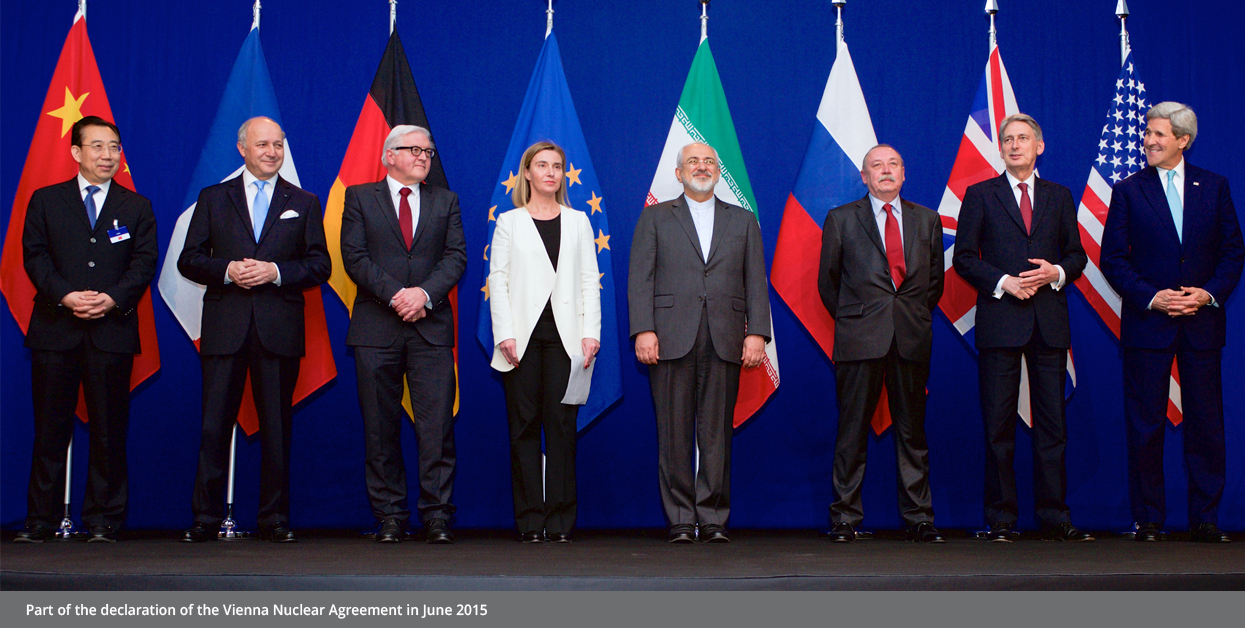
In this sense, Iran is concerned with finding settlements for the thorny files in the region and reviewing the foreign policy to seek economic benefits after lifting sanctions against it, and this might prompt a rapprochement with some Arab countries which had enmity with it for years.
Third: Russian role in rapprochement between allies:
Russia's role in a regional rapprochement between Iran and the Arab Gulf states or at least the attempt to defuse their tension by virtue of mutual allies of both may be considered by some a justification for arguing about a potential regional calm as a consequence of Iran's nuclear program accord.
In light of the unprecedented Russian-Western tension since the end of the Cold War due to Russia's military operations in Ukraine and an intense international polarization in consequence, Russia highly prioritizes promoting relations with Gulf allies especially that they never took sides with the U.S in the Ukrainian Crisis and upheld understandings about oil production with Russia under OPEC+ despite U.S and Europe demands to abandon these understandings.
Fourth: Business considerations:
Iran's Nuclear Agreement Program will grow Tehran's commitment to restore business and economic relations within the Arab and regional context amid the huge hardships its economy suffers under the imposed sanctions years ago.
At the same time, the upcoming nuclear deal is a chance for business along with the correction of Iran's behaviour in the region and support of the horizons of successful talks with Saudi Arabia, especially since regional alliances tend to be based on economic interests and mutual dependence between different parties.
A new stage of tension and instability:
On the other hand, there are numerous considerations and factors that might make a nuclear deal between Iran and the international powers a reason for a slip in the entire region which consequences of might not be expected. Most significant of them perhaps:
First: 2015 Agreement experience:
Iranian Nuclear Agreement experience announced in July 2015 did not establish regional stability by any stabilization criterion. Instead, the opposite happened when the region was engaged with a state of polarization and axes conflict between Iran and its allies from the one side and some Arab countries, primarily Saudi Arabia, United Arab of Emirates and Egypt on the other.
Moreover, the 2015 Accord escalated the Israeli-Iranian indirect confrontation which Israel's intense strikes against Iranian targets in Syria have clearly shown. Besides, Tehran accused Tel Aviv of responsibility for a number of attacks targeting nuclear facilities in Iran.
If the former 2015 Nuclear Accord led to a phase of tension and instability in the region under the reign of the former Iranian president Hassan Rouhani who was affiliated with moderate-reformist government, conservatives today, particularly the current president of Iran Ebrahim Raisi, who is close to Revolutionary Guards are firmly gripping most Iranian institutions. Thus, hardliners’ control over foreign policy may exacerbate severity of regional tensions.
Second: Strengthening Iran's foreign interventions in the region:
The Nuclear Agreement would increase President's Ebrahim Raisi popularity and support the Revolutionary Guard's position in foreign policy, based on nature of previous pre-agreement stage with its revolutionary and ideological discourse that would be presented to the Iranian interior and allies abroad as a national victory. A "victory" that might be reflected on Tehran's regional orientatons and on the armed groups they support since they believe that" maximum resistance" achieved successes for Iran.
On the other hand, financial flows that Tehran needs to finance foreign policy and support its allies or agents after lifting sanctions and releasing frozen financial assets abroad and resuming oil or gas exports may be available. As specifically for oil exports, IRNA News Agency quoted in April 22nd Mohsen Khojasteh-Mehr the CEO of National Iranian Oil Company (NIOC) saying "Oil production has reached pre-sanctions figures, despite economic pressures". He added "We are now in a position to double our exports;" suggesting that "In terms of energy security, the Islamic Republic is capable of achieving stability on the international scene."
Tehran will also exploit the U.S and the West's need for energy in the light of negative effects of Ukrainian Crisis on the global energy market for a quick return to the world market and to produce as much as it can to compensate the loss under the sanctions.
Third: The nature of Iran's vision about the nuclear agreement:
Iran does not only consider the nuclear agreement a document that assures compliance with collective measures of control providing guarantees for the nuclear agreement program, but also an American and international admission of its "hegemonic" regional role as an encouraging step to pace and adopt policies to resume its regional behaviour.
Throughout the years following the 2015's Nuclear Agreement both the United States and countries of the region had this impression, as the agreement reflected on regional balance at that time and opponents believed it was an American-Iranian deal that authorizes Iran to maintain its activity and behaviour in the region. It is likely that both parties' compliance whether with the previous or the new agreement without determining a set of special commitments in the region will reinforce these impressions.
Fourth: Iran's mistrust in the United States:
Due to former U.S president Donald Trump's abandon of the nuclear agreement in 2018, Tehran mostly stressed receiving guarantees that could maintain a permanent accord between both countries during Vienna negotiations, but since Iran did not gain what it aimed for, mistrust overwhelms till it all be cleared in the upcoming presidential elections in case of change in the American democratic administration.
As Tehran anticipates winning of the Republican Party in presidential elections anytime, it will abandon the nuclear agreement, this refrains it of showing all cards on the negotiation table which most important of at present is strengthening its position and its partners' position regionally in preparation for an upcoming expected round in the confrontation in case of administration shift in the white House.
In other words, Iran may consider any new nuclear agreement as temporal influenced by America's previous abandon of the nuclear agreement, which may restrict its willingness for a new agreement review, in addition to the change in its intervention policy in the region.
Fifth: lack of response to concerns of countries in the region:
The United States attempts to assure countries of the region about the forthcoming agreement with Iran and the role it plays to deter Tehran from acquiring nuclear weapons. Thus, American national circle of interest narrows whereas for regional countries it widens, that guarantees to America depriving Tehran from building a nuclear arsenal and even goes further including Iran's regional behaviour and the program of developing the ballistic missiles of regional countries.
Negotiations did not address these issues according to Vienna's table, and they may be transmitted to a sub-annex, but eventually regional countries are still concerned about Iran's ballistic missiles program and behaviour due to their previous role in regional conflicts and disputes.
Accordingly, Western countries are only concerned about managing Iran's nuclear problem without dealing with regional issues related to the nuclear agreement, particularly Iranian support to many armed groups and its interventions in a number of Arab countries, which is demonstrated through the assuring messages sent by the U.S Secretary of State Anthony Blinken during Naqab Summit held on Mar 27th - 28th 2022 in the presence of foreign ministers of UAE, Bahrain, Egypt, Morocco, Israel and the United States. They confirmed that the nuclear agreement will deter Iran from acquiring nuclear weapons; therefore, the West and regional countries were obviously diverted in views concerning Iran and explicitly disagree about the priorities for dealing with it.
Sixth: Israel's attitude
Israel's attitude of any future nuclear agreement between Tehran and the world powers is considered one of the most significant determinants of stability and tension in the Middle East in the upcoming period since Tel Aviv objected Vienna's negotiations and the concessions of the United States in exchange for the agreement when Israeli Prime Minister Naftali Bennett stressed that Israel would not be bound to any nuclear agreement.
Currently, Israel is investing efforts in preparation for plans to form a ring around Iran's activity in Northern Iraq and deepen military cooperation with Azerbaijan, but Iran is worried about reports of Israel's Air Force possible activity in Sitalchay, the Azerbaijani Military Airbase which is 500 km far from Iranian borders, and considers it a threat of air attacks targeting its nuclear facilities to implement Israel's previous frequent threats. In consequence, Iran allocated about 1.5 billion dollars to prepare the army for a possible strike against its nuclear program.
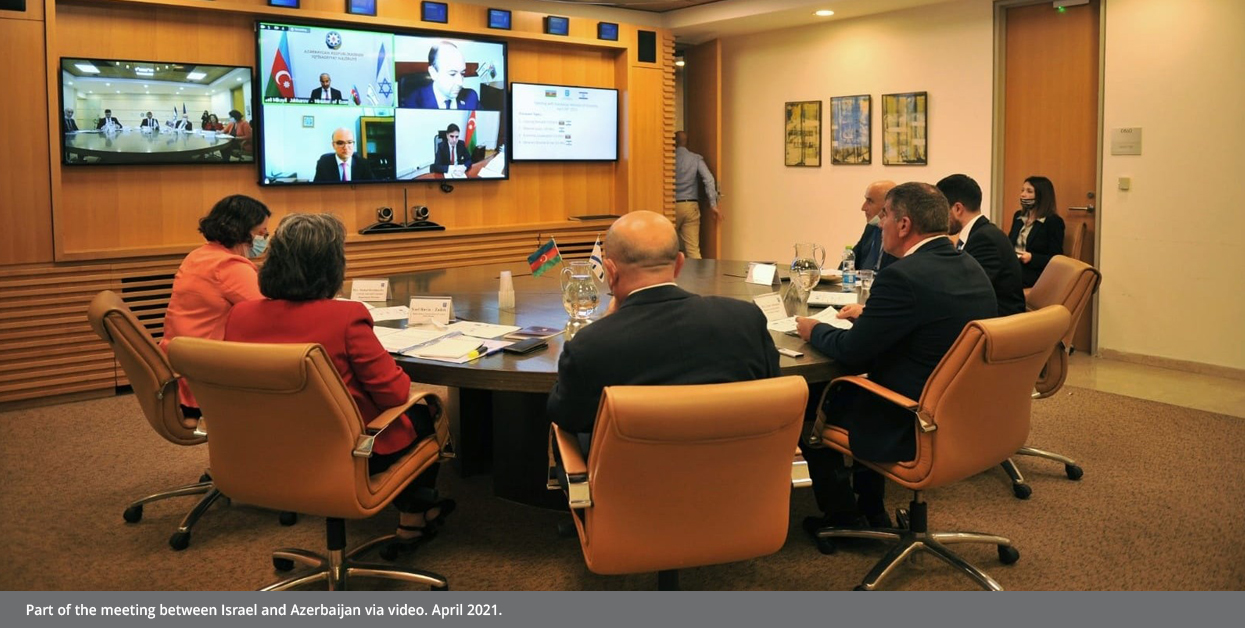
This approach makes a military Iranian-Israeli confrontation thus not excluded with Israeli estimates that Iran is on the verge of acquiring nuclear weapons after its remarkable advance in the nuclear program throughout the past years, amid the declined trust in the capability of U.S diplomacy to prevent Iran's acquire of nuclear weapons. Israel's attitude is in the line with estimates of some Arab countries regarding the need to confront mutual "Iranian threat" on both sides.
Seventh: Deepening security vacuum in the region after the Ukrainian Crisis
Many analytics touch upon the impact of Russia's military operations in Ukraine on its balancing role in the region. The long-term conflict between the two countries may change Russia's geopolitical and strategic priorities, which would negatively affect its role in the Middle East specifically in Syria where Moscow balances between Iran's goals and Israel's fears. The violation of this role would raise Tehran's ambitions vis-a-vis Tel Aviv's "Campaign between the Wars" expansion and its intensive strikes targeting Iranian presence in Syria.
Furthermore, the raise of Arab moves demanding Syria's return to the League of Arab States is expected in order to encounter Iran's influence there during the possible post–nuclear agreement phase. This would escalate tension between Iran and the Arab and may return the relation between the two parties back to square one.
Eighth: Forming a political and military alliance for the confrontation with Iran:
There is a widespread territorial move concurrent with an imminent anticipation for the sign of nuclear agreement as it is read through regional preparations to confront Iran after the agreement, especially that this move is accompanied with a consistent vision about the risks of Tehran's employment of released funds or post-agreement revenues to increasingly support affiliated armed groups. This approach manifested itself in the final statement of the Naqab Summit that assured "forming security committees and an early-warning security network to face Iran's threats in the region."
Yet, in the light of the previous reading about the region's changed policies and disengagement of political reality being the cause of calm, a trust gap between Iran and regional countries is standing still, given the past experiences with Iran's reconciliation discourse throughout the preceding decades of Rafsanjani, Khatami or even Rouhani's eras, this change turned to be phased and did not express strategic or fundamental orientation due to Iran's hegemonic persistent authentic foreign policies in the region regardless of both natures of the ruling president or the existing international and regional context.
In the light of all the above, the probable course of the regional interactions after the upcoming nuclear agreement is tensioned and unstable, but the nature, volume and limits of this tension are subject to two considerations:
The first is regional countries' behavior towards the agreement, in case it does not take into account the concerns or lift interests and security of them, both Iran and the United States will encounter a considerable regional opposition that might push for a failed deal.
The second is Iran's view and belief about the agreement if it would be an introduction for territorial hegemony or a chance to invest in either calm, reinforcement of stability or cooperation in the region.
The opinions expressed in this study are those of the author. Strategiecs shall bear no responsibility for the views and/or opinion of its author on security, economic, social, and other issues, as they do not necessarily represent the views of the Think Tank.
Keep in touch
In-depth analyses delivered weekly.

Related Analyses:







.jpg)
